1. We budget for a targeted surplus, that means that the purpose of managing our money is so that we have enough funds left over.
We want to see whether or not our money is going in and coming out at the right times and we have a Calendar tool that can help you to take a look at this. But that the timing of the money can be just as important as whether or not we have enough. And also can help us to prepare for things like occasional or seasonal expenses, things that happens quarterly, things that may happen once or twice a year. This can include birthdays, holidays gifts and and other types of things. Even holiday travel.
So let’s review the planning cycle then when we think of money management. So we’re to begin, with this idea of setting goals. We ‘re going to have some goal setting worksheets as we get into savings, but this is the idea of laying a foundation for what we want to do. What are the objectives of our financial management. Then we think about the idea of gathering information. This is going to involve tracking our expenses. Getting a handle on our bills. Seeing the money that’s coming in. Making sure we understand the money that’s going out. We’re going to write a plan, and we’re going to call that a budget for lack of a better term or as I like to refer to it, the B word. We then work the plan. We need to see whether or not the budget is actually working for us. And as we work the budget, we look at and ascertain whether or not it is effective. If it’s effective, then we leave it as is. And we keep trying to work it until something changes. If however we see that our budget isn’t effective, we don’t have enough money left over, we’re not able to meet all our obligations. Or we have nothing leftover for us to enjoy life with, then we may need to make some changes to the plan as well. So let’s remember the cycle that we’re going to think about.
So let’s begin by identifying your income. We want to think about salaries, wages, cash assistance, benefits, any assets that we could sell if we absolutely had to, if money was needed for debts and emergencies. Now we don’t want to think that at any given point, selling an assets is no problem. And that it should be our solution to any money woes we have. In fact, most physical assets really, can be challenging to sell. We may not get what we wanted to out of them.
Now, what if we do not know how much money our income will be ? so some of us work on commission, some of us work for tips, some of us work on odd hours change from week to week. Sometimes we have overtime, sometimes we don’t. So, there’s many fluctuations for this. When we think of creating a budget, we want to focus on the idea of what’s the normal, what’s our average amount of income that we are going to be receiving, not the most and generally, not the least either, but somewhere in that middle. So using that average amount can be very good. If you are very pessimistic and very concerned and it stressed you out, you can go with the lower amount of that income range , but my suggestion is always just to try and think a little bit about the average. If you are going to use the calendar, then this monthly income actually is going to be on page nine of that money management calendar that you’ll have.
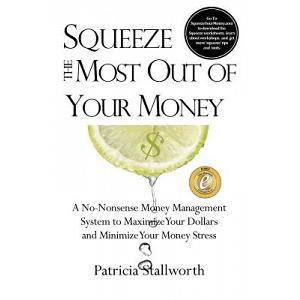
- Spending diary, keep a folded sheet of paper with you
- Keep all receipts
- Decide the category of each expense
- Write amounts in the money management calendar tables each day, this is pretty nice low tech way to keep track of your spending as you’re going forward. So keep all the receipts. You can keep them with it, you can staple them to it. You can put them all in an envelope and indicate that you have the receipts. You can come up with categories for your expenses once you get a sense of where your money’s going, how much is coming in, and how much is coming out. And then write these amounts in money management calendar everyday if you can or at least once a week. Take your folded up sheet of paper, and transfer it to the money management calendar. Again, a great way to be tracking your expenses. This is that information we talked about. It’s really hard to plan a budget, if we have no idea where our spending is going. In other words, if we don’t have a record of it, we’re just guessing with how much money we spend. And that can be pretty and also very dangerous in the sense that we could be wrong.
- Identify the fixed, consistent expenses, so then we build the budget, we take a look our expenses and we figure out what are the fixed, what are the consistent expenses, and we can think about what some of these are, rent or morgage. Utilities maybe fixed, depending upon the type of utilities we’re talking about. Our debt payments, whether it’s student loans, whether it’s to a car, all of these things can be relatively fixed or consistent in nature. Meaning that they’re going to be the same from month to month.
- We can aslo have more flexible expenses, these are expenses that occur regularly, but they vary from amount to amount. So food is a great example of this. Even if we mostly spend our money at the grocery store, there’ll often be some variability with a few dollars here or there or even more, from each grocery shopping experience. If we eat out a little bit as part of that time too, that’s also going to vary as well and have some flexibility in it. And it’s flexible also in the sense that we have some control. We can decide not to do some of these things. We can decide a little bit about what we’re going to purchase or what we’re not going to purchase. The generics versus the name brands, so on and so forth. And clothing, would be another great example of this. So, think yourself, what are some of my flexible expenses? What are some of the things i have to pay? What expenses do I have that are the same every month? And what expenses do I have that go up and down a little bit, that fluctuate?
- We also want to think about, those emergency funds. So this should be roughly equivalent to three to six months worth of your expenses. So, as a fixed expense category, you want to go ahead and account for savings. And in particular start with building up that emergency fund so that we have enough money held up in liquid reserves, so that we can meet ends, they can make ends meet for at least about three to six months if we can.
- Another budgeting tips too, think about those occasional expenses, the birthday, and such that are going to come up and allocate for those. One way I like to do it, is you have something every month, then you could just think about budgeting for these holiday or gift expenses. If you have a few times a year that you need to buy for, you might average those over a 12 months period, so that you have to put away roughly the same amount of money every month towards those gifts and expenses. Now, this is good because then it doesn’t create a shock to your financial system, in any given month where you might have that holiday or seasonal expense.
Organizing Your
Calendar
Now let’s take a look at that calendar then for a moment here in calendar, so calendars can be really helpful. One of the nice things I like about is it’s going to map out things. When the money’s coming in, when the expenses are going out. The other thing is that it helps us foresee certain shortfalls may occur. Let’s take a look at the really important one here. So at the beginning of the month, we have rent due $500, now this works out for someone, right? They know when their payment’s due, that’s a fixed expense, we get the part of it. The challenge is they get paid on the 6th, $750. They make enough money to pay the rent, but what the challenge they’re facing? The rent is due, before they get paid.
 |
| The Personal Finance Handbook: All the Best Personal Finance Questions & Their Answers |
Using Monthly Calendars
You can use calendars to:
- Keep your bills, you can stuff your bills in there for the current month. So that can be helpful. Depending on the method of payment, plan to pay the bill at least 2 – 3 days in advance. More time maybe needed if bill due on a weekend for the clearing purposes.
- Match up, the calendar helped us as we can remember the timing of income, the timing of expenses.
- See when are expenses typically bunched? First of the month, middle, or end? Or are we really evenly spread out throughout the month? These are just things that can help us as we start planning ahead, as we start trying to get more organized with our finances, those visual cues can be very helpful. So, the calendar help us to foresee and to see.
- See whether do you have cash flow problem, do we have enough money and more importantly do we have enough money at the right times? Remember that when we talked about one of the importance of cashflow management, was about liquidity. Do we have enough money at the right times, as opposed to always, do we have enough money overall.
Review and Revise
- Add up amounts in the flexible expenses columns, we see whether or not we are dominated by flexible expenses.
- Add up fixed expenses, we see whether or not we are dominated by fixed or rigid expenses?
- Add up fixed and flexible amounts together, did you go over? Did you spend less that you budgeted? Are we right where we need to be? Are we budgeting so that we are spending less than what we make? That’s what we would call a surplus. Or are we spending more than what we make? Which is what we call deficit.
- Subtracs total expenses from income, and again as always, income minus expenses, is going to tell us whether or not we have a surplus or a deficit.
- Did you stay within your plan?
- Did you save amount you need for occasional expenses?
Increase
Income/Resources
Now what if when you’re looking at your budget, you know it just doesn’t match up. Assuming that you’ve been tracking your expenses, you may have some legitimate concerns. So, how can we increase our income or increase our resources?
- You can try and get a second job, than can sometimes be easier than said than done.
- You can always ask for raise
- Find a better job
- If you’re sharing resources or expenses with someone, a family member could get a job as well or change the nature of what they’re doing so that they can bring in a little bit of extra income.
- Learn to do things yourself because we certainly can save a little bit of money on home repairs or other types of small things we need to do.
- Bartering or trading services, another great example that’s come up a lot more nowadays, you might be really good at helping people with technology or with their computers, while you need someone to come help who has lawn mower to make sure you lawn is taken care of. You can trade off some services, no money take place. Everybody gets what they needed, and again, we’re able to potentially save some of our cashflows, but give a little bit of our time, which sometimes is more accessible to us than extra money. But just some food for thought there on the bartering or trading services with friends or members of your community.
Increase Income
- Get new licenses/degrees/certifications, this may require money to make money. Investing in your education can certainly be beneficial for you, you get degrees, get certifications, and these are not always free to get, but the payoff can sometimes be very beneficial and justify the necessary expense.
- Personal exemption withholding from paychecks
- Tax deductions or tax credits, if we have children, earned income credit, dependent care credit, this maybe part of it. So, also we want to recommend that when it comes to taxes, seek out and utilize things like free incomes tax assistance sites
- Get prepared taxes free, amend previous tax return.
Check for Spending Leaks
- Do you compare prices? If you have a smartphone, there’s a million apps you can probably use to do this, but comparing prices is something that may seems out of style, but let me assure you, it’s never gone out style, we want to take the time to do it. We shouldn’t hopefully, be in too big of a rush for any purchase, that we can make sure we’re getting the best deal.
- Do you use coupons? Use advertising to your advantage? Well, we don’t want to necessarily buy everything that we have a coupon for, it’s great if we have coupon for everything that we know we needed. So as always, make sure we set that shopping list first and use coupon if we have them. And a few other things too when you do go shopping. Don’t go shopping when you’re hungry if you can avoid it, and it’s very helpful to have a list to avoid spontaneous purchases of that really exciting new cereal that’s on the shelf that’s you’ve always wanted to try.
- Do you think ahead about your needs? Trying to start planning ahead a little bit more. A calendar can be helpful for that. It forces us to look ahead in the coming months and see what things might be happening. We can get some reminders for that and also taking of what we own can be very important.
- Do you take care of what you own and get full life from purchases? It avoids you having to spend more money to repair things, to get things replaced, and this includes everything from eyeglasses to technology, to vehicles. Taking care of those with proper maintenance. If it’s our eyeglasses put them down in a safe place to avoid somebody sitting on them, so we want to take care of the things that we own so that we get fulll life from those purchases. We don’t have to replace them in a short time frame, so we can have them live at least as long as they were intended to.
- Reduce or eliminate spending on any wants we have. Needs are something we often can’t avoid, wants are something we should be considering.
- Modify or reduce flexible expenses, car pooling, limiting our eating out, grocery shopping, electric and water.
- Can you change your fixed expenses? This often requires a little bit more restructuring.
How much should we spend?
- Food is between 13 – 15%
- Housing is anywhere from 32 – 42%, the recommended guideline is right around that 28% benchmark for a mortgage epecially.
- Child care 15 – 25%
- Clothing 3.8 – 4.2%
- Personal 2 – 5%
- Transportation 17 – 18%
- Medical 6 – 7%
- Education / Recreation 0 – 10%
- Gifts / Contributions 0 – 10%
- Misc. / Emergency 2 – 10%
- Savings 0 -10%
- Insurance 0 -11%
So to get to those percentages,
just divide the amount you spend by the amount you take home. So $450 for rent
devided by $1.200 of income equals 0.375 or 37%. Is that in the range we should
be at for housing? Is that a little bit on the high side? A little bit on the
low side? Those are some of the questions we can ask ourselves. When we look at
these percentages, we often refer to this as vertical analysis statements. So we
get a sense of saying, are we spending more than we ought to on a particular
category?
 |
| Personal Finance 101 |
Let’s think about the long term cost of snacks, $2 per day or $60 per month. If we invested $60 per month for 30 years, think about that for a moment. Over the next 30 years just by not snacking by the vending machine wherever you’re going everyday over the 30 years period. When people say well how will I have enough money for retirement, that’s not too bad at least in terms of starting us on the right path and all that took was giving up some daily snacking.
Source:

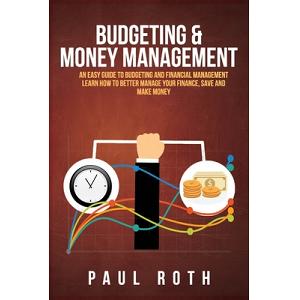
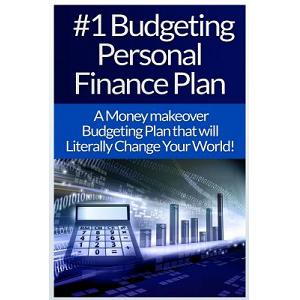

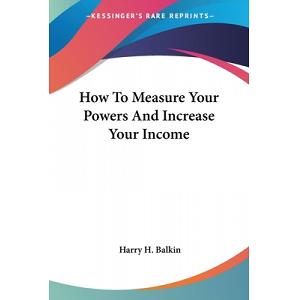
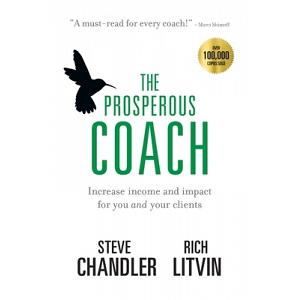
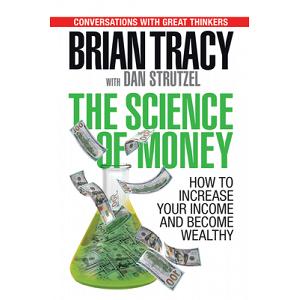
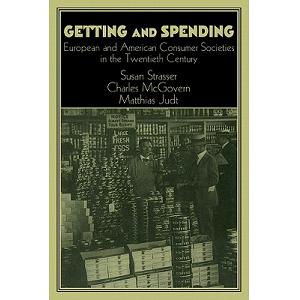
No comments:
Post a Comment